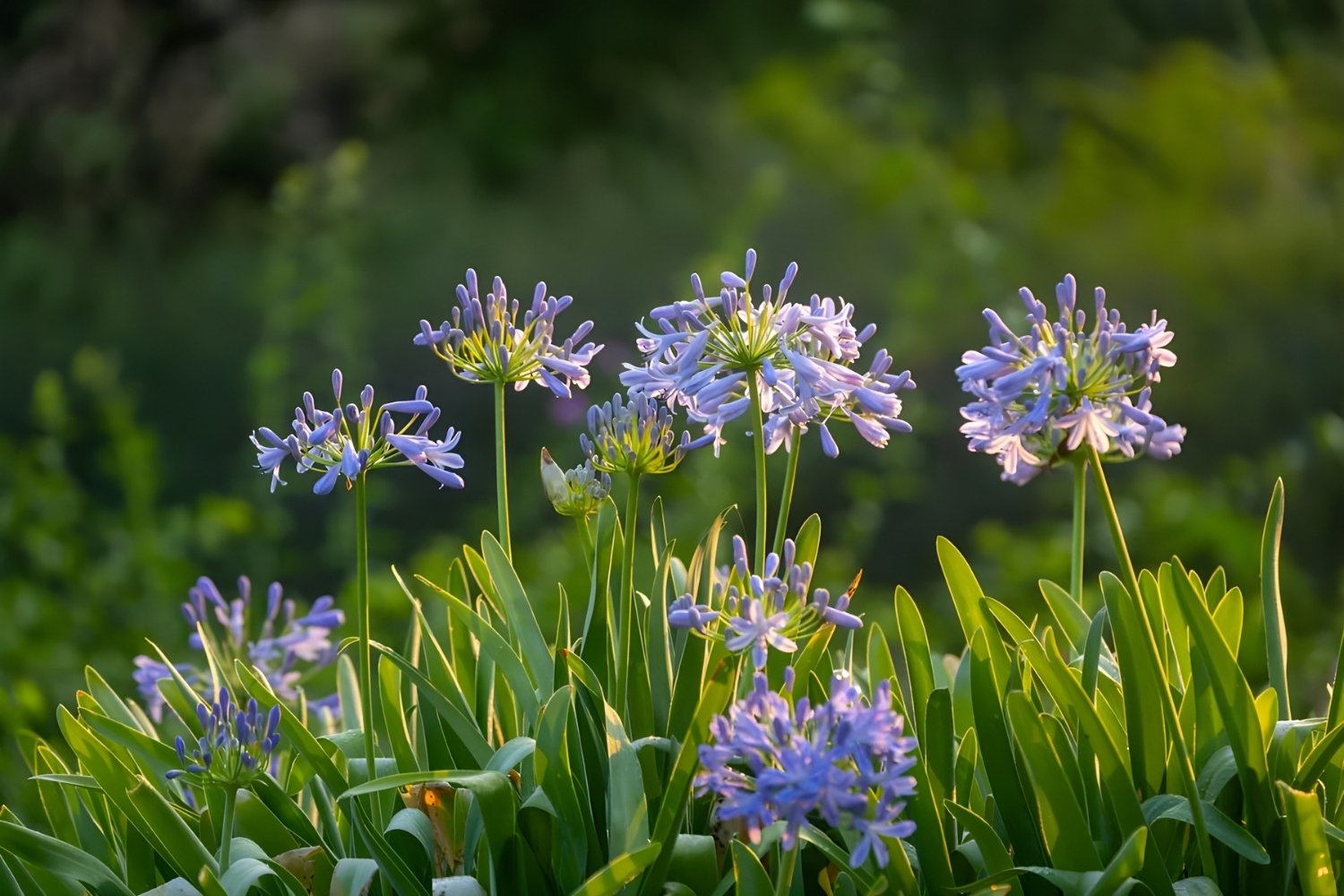
African lilies, also known as Agapanthus, are stunning flowers that add a splash of color to gardens. But did you know these beauties have more to offer than just their looks? Native to South Africa, these plants thrive in warm climates and can be found in various shades of blue, purple, and white. They are not just pretty faces; they also have some surprising uses and interesting history. From their medicinal properties to their role in traditional ceremonies, African lilies are more than meets the eye. Ready to learn more? Here are 27 fascinating facts about African lilies that will make you see them in a whole new light.
What is an African Lily?
The African lily, also known as Agapanthus, is a stunning flower native to South Africa. Known for its vibrant blue or white blooms, it adds a touch of elegance to gardens worldwide. Let's dive into some fascinating facts about this beautiful plant.
-
Scientific Name: The African lily's scientific name is Agapanthus, derived from Greek words meaning "love flower."
-
Native Habitat: These flowers originally come from South Africa, thriving in the region's warm climate.
-
Variety of Colors: While commonly blue, African lilies can also be found in shades of white, purple, and even pink.
-
Blooming Season: They typically bloom in summer, providing a burst of color during the warmest months.
-
Sunlight Needs: African lilies love sunlight and grow best in full sun or partial shade.
Unique Characteristics of African Lilies
African lilies have several unique features that make them stand out in any garden. From their growth patterns to their resilience, these plants are truly remarkable.
-
Evergreen or Deciduous: Depending on the variety, African lilies can be evergreen or deciduous, meaning some keep their leaves year-round while others shed them.
-
Height: These plants can grow anywhere from 1 to 4 feet tall, making them suitable for various garden designs.
-
Clump-Forming: African lilies grow in clumps, which can spread over time, creating a lush, full appearance.
-
Drought Tolerant: Once established, they are quite drought-tolerant, making them ideal for low-water gardens.
-
Deer Resistant: These plants are generally resistant to deer, which can be a significant advantage for gardeners in rural areas.
Uses and Benefits of African Lilies
Beyond their beauty, African lilies offer several practical benefits. They can be used in various ways to enhance both gardens and homes.
-
Erosion Control: Their root systems help prevent soil erosion, making them useful for stabilizing slopes.
-
Cut Flowers: African lilies make excellent cut flowers, lasting a long time in floral arrangements.
-
Medicinal Uses: In traditional medicine, parts of the plant have been used to treat ailments like heart disease and coughs.
-
Attract Pollinators: These flowers attract bees, butterflies, and other pollinators, supporting local ecosystems.
-
Low Maintenance: They require minimal care, making them perfect for beginner gardeners.
Growing and Caring for African Lilies
To get the best out of your African lilies, it's essential to know how to grow and care for them properly. Here are some tips and tricks to ensure they thrive.
-
Soil Requirements: They prefer well-drained soil, rich in organic matter.
-
Watering: While drought-tolerant, they do best with regular watering, especially during dry spells.
-
Fertilizing: A balanced fertilizer applied in spring can boost growth and blooming.
-
Dividing Clumps: Every few years, divide the clumps to prevent overcrowding and promote healthy growth.
-
Pest Control: Generally pest-free, but watch out for snails and slugs, which can damage the leaves.
Fun Facts About African Lilies
These fun facts highlight some lesser-known aspects of African lilies, adding to their charm and appeal.
-
Symbolism: In the language of flowers, African lilies symbolize love and beauty.
-
Name Origin: The name "Agapanthus" comes from the Greek words "agape" (love) and "anthos" (flower).
-
Longevity: With proper care, these plants can live for many years, providing long-term beauty.
-
Hybrid Varieties: There are numerous hybrid varieties, each with unique colors and characteristics.
-
Container Growing: They can be grown in containers, making them versatile for patios and balconies.
-
Climate Adaptability: While native to South Africa, they can adapt to various climates, from Mediterranean to temperate regions.
-
Wildlife Friendly: Besides attracting pollinators, they also provide shelter for small wildlife.
The Final Bloom
African lilies, or Agapanthus, are more than just pretty flowers. They bring a splash of color to gardens, attract pollinators, and have a rich history. These plants are hardy, thriving in various climates, and require minimal care. Their ability to bloom in different shades, from deep blue to pure white, adds versatility to any landscape. Whether you're a seasoned gardener or a newbie, African lilies offer a rewarding experience. They symbolize love, beauty, and purity, making them a meaningful addition to your garden. Plus, their medicinal properties are an added bonus. So, next time you see an African lily, remember there's more to it than meets the eye. Embrace the beauty and benefits these flowers bring, and let them brighten your space. Happy gardening!
Was this page helpful?
Our commitment to delivering trustworthy and engaging content is at the heart of what we do. Each fact on our site is contributed by real users like you, bringing a wealth of diverse insights and information. To ensure the highest standards of accuracy and reliability, our dedicated editors meticulously review each submission. This process guarantees that the facts we share are not only fascinating but also credible. Trust in our commitment to quality and authenticity as you explore and learn with us.
